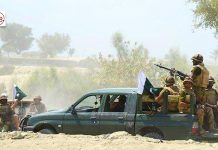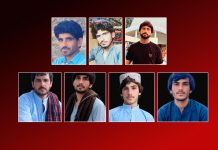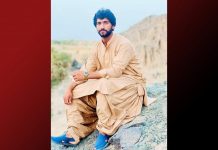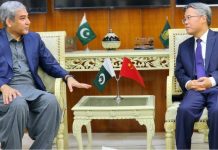Author: Beebarg Baloch
Paulo Freire, a Brazilian educator and philosopher, was born in 1921. He received fame for his influential book on educational system “Pedagogy of the Oppressed”, which was published in 1970. His book is considered as one of the foundational texts of the critical pedagogy movement.
In the book, Paulo Freire presented the difference among the oppressors and the oppressed, the revolution and the revolutionary process, how the capitalists have caged us in the form of our contemporary education and educational system, how the capitalists’ policy of anti-dialogical action works in conquesting, divide and rule, manipulation and cultural invasion and how the theory of revolutionary leaders works in cooperation, unity, organisation, and cultural synthesis for the liberty of the oppressed people.
The book “Pedagogy of the oppressed” is organised into four chapters. In the first chapter, the author explores the nature of the historical struggle between the oppressed and the oppressor, making the case for the pedagogy of the oppressed. Examining how the balance of power between the coloniser and the colonised remains relatively stable, the writer admits that the powerless in society can be frightened of freedom. He writes, “Freedom is acquired by conquest, not by gift. It must be pursued constantly and responsibly. Freedom is not an ideal located outside of man; nor is it an idea which becomes a myth. It is rather the indispensable condition for the quest for human completion.”
Freire explains in details as to why this pedagogy is necessary. Describing humankind’s central problem as affirming one’s identity as human, he states that everyone strives for this, but oppression interrupts many people on this journey. These halts are termed dehumanisation. Dehumanisation, when individuals become objectified, occurs due to injustice, exploitation and oppression.
Friere also states that it is necessary for the oppressed to understand what humanisation truly is. It is easy for the oppressed to fight their oppressors only to become the polar opposites of what they currently are. In other words, this just makes them the oppressors and starts the cycle all over again. To be fully human again, they must identify the oppressors. They must identify them and work together to seek liberation.
Further in the first chapter, Paulo Freire says that for the liberation it is essential to understand what the goal of the oppressors is. Oppressors are purely materialistic. They see humans as objects and by suppressing individuals, they are able to own these humans, while they may not be consciously putting down the oppressed. They value ownership over humanity and essentially dehumanising themselves. This is important to realise as the goal of the oppressed is not to only gain power. It is to allow all individuals to become fully human so that no oppression can exist.
In the preceding chapter, Freire outlines his theories of education. The first one discussed is the ‘banking model of education’. He believes the fundamental nature of education is to be narrative.
He breaks down the traditional relationship between teachers and students, in which teachers have power and knowledge, but the students do not. In this “banking model” of education, a teacher ‘deposits’ facts into the minds of the students who have to memorise and recall them. They are not allowed to question the world or even their teachers. This lack of freedom highlights the comparisons between the banking model of education and oppression.
Freire critiques this model and suggests that it teaches students to adapt to an oppressive world, instead of teaching them how to view the world critically. In the fight for liberation, oppressed people and educators should reject the banking model: Freire replaces it with a “problem-posing model” that makes teachers and students more equal. Problem-posing education presents students with worldly problems that relate to their lives and push them to analyse how and why those problems exist. According to Freire, this model directly combats oppression by empowering people to question their conditions, and by encouraging dialogue.
Third chapter is used to expand on Freire’s idea of dialogue. He first explains the importance of words, and that they must reflect both action and reflection. Dialogue is an understanding between different people and it is an act of love, humility and faith. Dialogue also requires hope, mutual trust and critical thinking. Like the bigger fight for liberation, dialogue consists thoughts and concrete actions. It provides others the complete independence to experience the world and name it how they see it.
Freire explains that educators shape how students see the world and history. They must use language with the point of view of the students in mind. They must allow ‘thematic investigation’ for the discovery of different relevant problems and ideas for different periods of time. This ability is the difference between animals and humans. Animals are stuck in the present unlike humans who understand history and use it to shape the present.
Freire explains that the oppressed usually are not able to see the problems of their own time, and oppressors feed on this ignorance. The writer also presses the importance of educators not becoming oppressors and not objectifying their students. Educators and students must work as a team to find the problems of history and the present.
Freire further says that the historical moments are characterized by the ideas and values of people during that moment. He calls the worldly expression of those ideas ‘themes’. By discovering these themes in a classroom’s environment, students can deepen their understanding of the world, and educators can gain insight into their students’ perspectives. The writer proposes one way of achieving this in which educators use auditory and visual materials to present students with a situation and gauge their feelings about it.
In the last chapter of the book, Paulo Freire concludes by offering a theory of revolutionary action that counters the oppressor’s cultural tactics to preserve his dominance and also explains the four anti-dialogical actions including conquest, manipulation, divide and rule, and cultural invasion. The four dialogical actions, on the other hand, are unity, compassion, organization, and cultural synthesis.
He also elaborates the methods used by oppressors to suppress humanity and the actions the oppressed can take in order to liberate humanity. The tools the oppressors use are termed ’anti-dialogical actions’ and the ways the oppressed can overcome them are ‘dialogical actions’.
The practice suggested by Paulo Freire can encounter ‘limiting situations’ that block them, and that these situations are the product of resistance on the part of the oppressing classes to any change in the status they so closely protect.
Freire argues that oppressed people can regain their humanity in the struggle for liberation, but only if that struggle is led by oppressed people. He is justified in urging to avoid the various educational pitfalls which we have been presently encountering by choosing artificial experiences.
Finally, Freire describes for us the various methods and ideologies used by oppressors to suppress others and recommend that we take our educational opportunities from our daily experiences.
Disclaimer: The views and opinions expressed in this article are those of the author and do not necessarily reflect the official policy or position of The Balochistan Post or any of its editors.






























